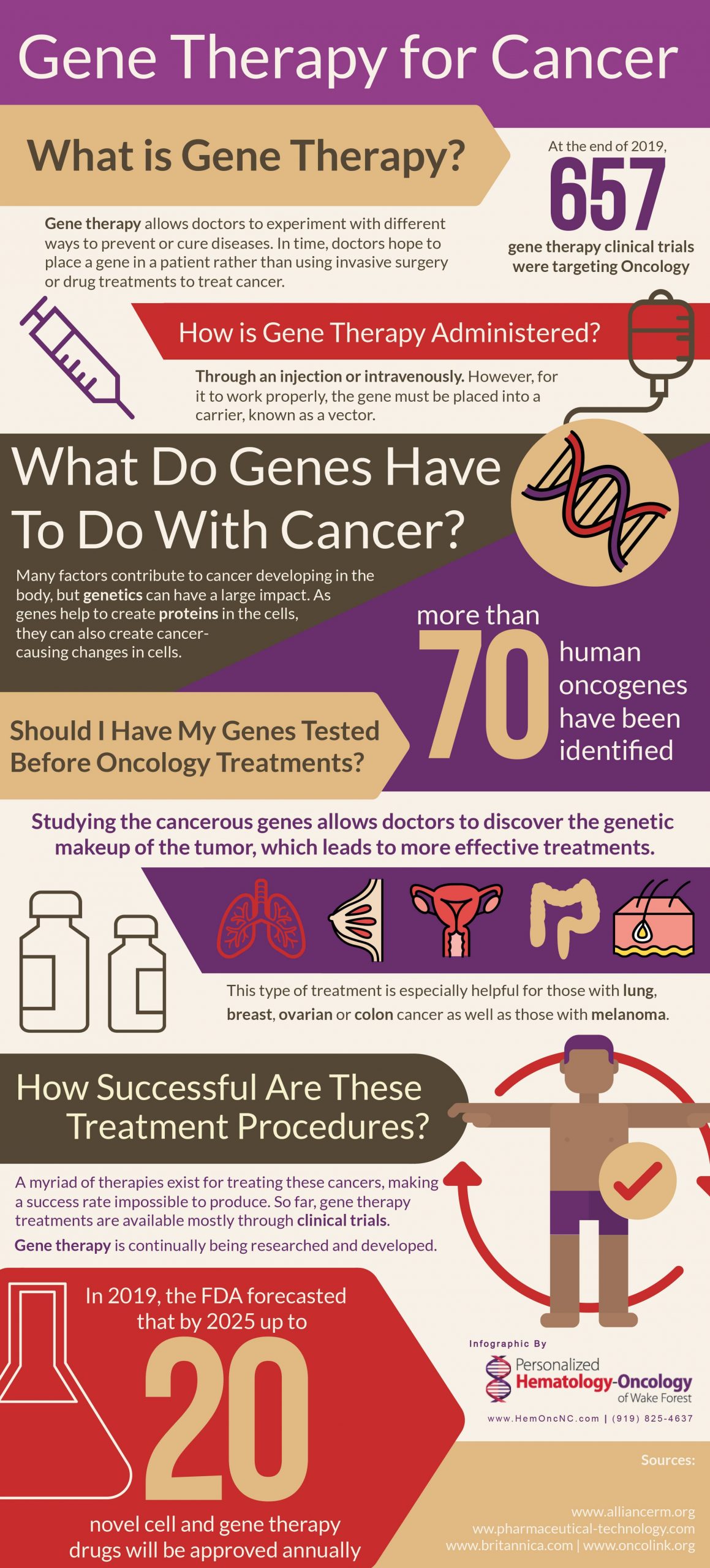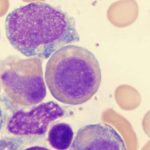Gene Therapy for Cancer Treatment
Your doctor may have suggested gene therapy as a potential treatment if you have received a disheartening cancer diagnosis. Check out our infographic to learn more about what gene therapy is and what genetics has to do with cancer.
What is gene therapy?
This innovative treatment allows doctors to experiment with different ways to prevent or cure diseases. In time, doctors hope to place a gene in a patient rather than using invasive surgery or drug treatments to treat cancer. By place a gene in a patient, doctors may be able to replace mutated genes, remove genes that are not adequately functioning and put new genes into a patient to fight against disease or illness.
How is this gene therapy administered?
These therapies are administered either through an injection or intravenously. However, for it to work correctly, the gene must be placed into a carrier, known as a vector. This treatment can send the vector straight into the tissue. Through the tissue, it is taken in from cells. In some cases, the patient’s cells are removed and then introduced to the vector in a laboratory setting.
What does genetics have to do with cancerous tumors?
Many factors contribute to cancer developing in the body, but genetics can have a significant impact. As genes help to create proteins in the cells, they can also make cancer-causing changes in cells.
Why should I have my genes tested before oncology treatment?
Since doctors can study the genes of a cancerous tumor, they can also better treat it. Studying the cancerous genes allows doctors to discover more about the genetic makeup of the cancer tumor, which leads to them being able to treat it effectively. This type of treatment is beneficial for lung, breast, ovarian or colon cancer and melanoma.
How successful are these procedures?
As studies are still being done on the efficacy of gene therapy for different cancers, it is currently impossible to determine the success of this procedure for different types of cancer. So far, these therapy treatments have been conducted for pancreatic, rectal and esophageal cancer. Melanoma has also been treated with gene therapy.
Gene therapy is continually being researched and developed. The oncology community will no doubt use it for cancer treatment shortly.
For more information about how to treat cancer and determine if what is a good choice for you, contact us today.

Made with Visme Infographic Maker





